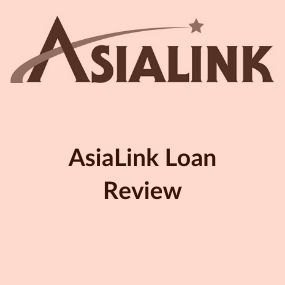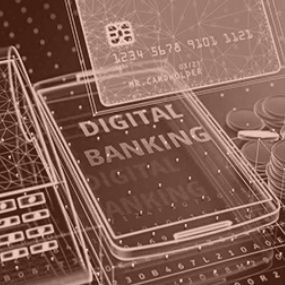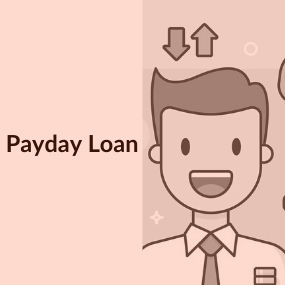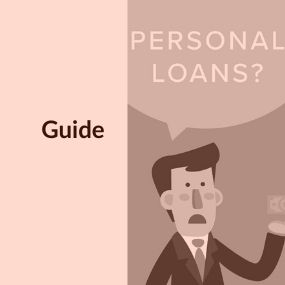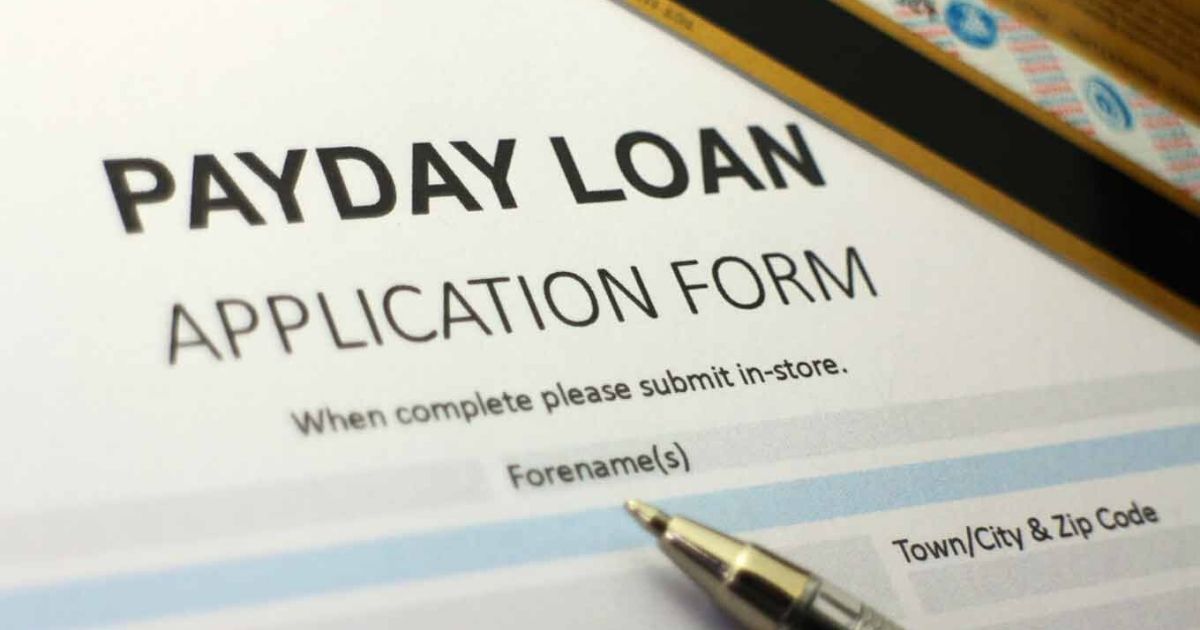
How Payday Loans Are Different from Other Personal Loans?

In the world of lending, there are several major types of offline and online loans provided to customers. They vary depending on the amount, requirements, lenders, borrowers, and so on. Still, the most global classification is based on purposes.
Generally, there are business loans that are widely used by enterprise owners and provided by large banks and institutions. On the other hand, there are personal loan lenders who deliver money used by customers for their private purposes.
In the following guide, we’re to reveal the major differences between personal loans as a global category and quick cash payday loans as a subtype. We will move through these groups, understand their pros and cons, check ways to obtain, and answer when they’re essential.
If you’re wondering what is the best personal loan in the Philippines, we’re here to help.
Table of Contents How Payday Loans Are Different from Other Personal Loans?
Key Definitions and Differences
Without further ado, let’s start with the main question stated in the title. It’s important to understand which advantages and disadvantages can be faced by you in case of choosing one or another type of loan. However, most Filipino companies have a similar understanding of personal and, particularly, payday loans so let’s look at them.
Personal Loans
Unlike business offers, personal ones are focused on the needs of each particular borrower or his/her family, friends, etc. While it’s not prohibited to use personal funds to invest in the business, such loans are used for private demands, most often. Thus, the list of loans includes but isn’t limited to:
- Car loans in form of lump sums or direct transfers to dealers.
- Education loans can be granted to a student or his/her parents.
- Emergency loans to cover unexpected costs, e.g. medical ones.
- Installment offers to purchase specific goods.
- Mortgage types that are almost obligatory when you need a new home.
- Payday options used as fast loans with cash in advance.
- Reloans widely used for debt consolidation.
Other parameters include collateral (secured and unsecured), the term (short, mid, and long), amount, interest, etc. All lenders in the Philippines offer personal loans online or in the land-based offices.
Pros
- Acceptable conditions. The balance between requirements and interest is pretty good. You don’t have to show a perfect credit history but receive down to 5% APR.
- Different amounts. Depending on needs, lenders can provide different amounts. They vary from a few thousand pesos to several million.
- Long repayment. The longest personal loans fall into the category of mortgage offerings. With them, clients get up to 20 years to return the funds.
- No collateral. Short- and mid-term packages come as unsecured personal loans. Thus, banks will not require your car or house as collateral.
- Unlimited uses. Once the loan is approved, only you decide how to use the received funds. But remember that you still need to repay it.
Cons
- Extra fees that may be hidden. Some lenders include dozens of extra payments, e.g. origination fees, processing fees, penalties, etc. Always ask about them.
- Fixed and obligatory payments. Unlike cards, loans come with stable payments. Interest can’t be lowered in this case.
- Prepayment penalties. A lot of companies don’t allow to return the loan earlier than the due date. And this option also can be hidden from you.
- Scams and frauds. There are hundreds of illegal lenders in areas with poor regulation. Be aware of them and never work with loan sharks.
Ways to Get
In the Philippines, personal loans are highly popular. That’s why borrowers can get them almost everywhere. We’d suggest choosing big and famous banking groups like Citibank, BDO or Home Credit. Also, governmental personal loans from SSS or GSIS are acceptable. Small private lenders can be legit – check them.
Payday Loans
The next thing we should explore is a payday loan. So, what is it? Shortly, it’s a loan without collateral, which must be fully repaid with interest on the next payday.
In the Philippines, people love these easy loans because they can get money without issues at all. However, you should remember that lending always requires planning skills from you.
Pros
- Fewer requirements. A borrower needs only one valid ID. Lenders don’t review credit scores and don’t require income/employment proofs.
- No collateral. When personal loans often come as unsecured packages, payday ones always fall into this category.
- Quick approval. So far as people need the funds urgently, lenders approve and deliver funds in less than a day.
Cons
- Debt accumulation. The lenders tend to lure you into debt. When you can’t repay the first loan, they will offer another one, and again, and again.
- Exorbitant interest. Loans for people with bad credit should have some protection for lenders. Thus, they are costly. Often, APR exceeds 100% and may go up to 1000%.
- Low amounts. It’s almost impossible to get more than a few thousand. Just imagine paying P1,000 as a fee to take P5,000 and then return up to P10,000 within a week!
- More scams and frauds. Loan sharks operate in this industry. They give numerous loans without any checks and then steal data, intimidate, and even can drive borrowers to suicide.
- No credit score influence. Sometimes, it’s good. But in the long run, you’re interested in a good credit score that can be built via loans and credits only.
Ways to Get
Filipino citizens ask: where can I get a payday loan? While some banks and large private lenders issue them in the form of emergency financial help, small street bureaus remain the most popular option. It’s difficult to say which ones are reliable. We suggest conducting thorough research before contacting them.
Things to Consider Before You Apply for a Loan
Undoubtedly, there are cases when you need quick cash. Sometimes, you need the funds not urgently but still can’t find another option but get a loan. Get us right, it’s a normal idea to borrow money. Just be sure that you know the basic rules that can help in avoiding problems.
In case when a person decided to apply for a loan, there are many aspects to consider. Sure thing, each situation is unique and you are the only one who is in charge of your budget, but we hope that the information below will help you understand the basics of lending and make the right decision.
1. The Main Purposes
The first question you should ask yourself: do I really need a loan? The problem is that a lot of people think that they are in need when they aren’t. Means, not all loans are good.
Here are examples of acceptable reasons to borrow funds:
- Education and other investments in you/your close ones’ future.
- Emergency cases when the money can save a life, literally.
- Work-based expenses, e.g. buying a car to get to the office.
And here are cases in which you should forget about borrowing:
- Costly purchases that don’t boost your revenue.
- Reloaning that accumulates your debt.
- Vacation and other forms of relaxation without medical need
It is obvious that no one can make a decision for you, as you are the only one who has been in your shoes, however, these general recommendations are useful in most cases.
2. Eligibility
It happens that you require the borrowed funds but can’t get them. Ideally, you should realize this early to find other options. Always check the requirements. They include age, citizenship, employment, income, credit score, etc. Usually, payday lenders have more favorable requirements.
3. Legality
The second pitfall is directly linked to eligibility. Often, companies that provide loans for people with bad credit require only one or two IDs. Sometimes, they’re frauds. Be sure not to pay upfront fees, not to provide sensitive data to unreliable companies, and not to borrow from loan sharks.
4. Repayment Opportunities and Schedules
What’s the worst thing about loans? Right, they deliver the money that you must return, earlier or later. Moreover, the majority of offerings come with extra interest so you will have to return more. Payday alternatives are the best example as they feature high rates.
Thus, choose a loan only when you realize that you can return it no matter what. And remember a few tips:
- Have reserve funds. They will help to return the money in case of unexpected issues.
- Manage expenses. Plan your spending to set up the most efficient budget.
- Stick to a schedule. Ideally, set automated transfer 2-3 days before repayment dates.
5. Study Everything
From interest to terms to extra bonuses, you are the first person interested in having complete knowledge about your loan. Ask about penalties and extra fees, explore alternative financing options, calculate repayments and rates, etc. The more you know about each particular lending service, the better.
Finding the Best Loans
Let’s move to some examples. The key rule of borrowing requires to deal with legit and reliable partners only. It doesn’t matter which type of loan you want because the safety of your funds and data is a top priority.
Apart from checking lenders manually, you can take a quick look at our list. It includes various types of companies but all of them are famous and legit:
- Citibank – private. Up to P2,000,000 up to 60 months, 1.26-1.46% monthly.
- GSIS – governmental. Up to P20,000 up to 36 months, 6% APR.
- Home Credit – private. Up to P50,000 up to 36 months, 0-70% APR.
- Maybank – private. Up to P1,000,000 up to 36 months, 1.5-1.6% monthly.
- Pag-IBIG – governmental. Up to 80% of the member’s value up to 24 months, 5.95% APR.
- RCBC – private. Up to P1,000,000 up to 36 months, 1.30% monthly.
- SSS – governmental. Up to P16,000 up to 25 months, 10% APR.
These groups also feature the lowest limit for loans. If you need small sums, pay attention to smaller private lenders. But, honestly, we can’t be responsible for them.
Examples of Loan Calculations
Finally, we want to show how the loan amounts and payments are calculated. On the examples of a few Filipino lending companies, we will try to count everything. Let’s just imagine that we get a loan from the mentioned firms and want to know our repayment schedule. It’s simple!
Here are two calculations. They’re based on two different companies and two loan types: a traditional personal loan and a payday package:
Citibank personal loan. E.g. P50,000 for 24 months. The interest will be 1.46% per month so you will have to pay each month. In total, the interest will be 35.04% or P17,520. Thus, you will have to return P67,520 in general or P2,814 monthly.
SSS emergency payday loan. E.g. P10,000 for 24 months. The interest is 10% per year and it’s based on the outstanding principal balance. You will have to pay P417 monthly plus interest. You will return P6,004 for the first year and 5,404 for the second one. In total, it will be P11,408.
Though it is not hard at all to make these simple calculations, some people are ignoring the need for them and found themselves in a debt later. Be sure to act wisely.
Is Lending a Must in My Situation?
And here’s the last question. Before opting for any loan regardless of the type, think twice whether you need this service or not. Probably, you have alternatives. Personal savings are the best as they don’t accumulate interest and you don’t risk dealing with illegal groups. But there are more offers.
Credit lines, for example, often come at 0% interest, too. They are convenient as you have to return only the amount you actually spent. But if you really require a loan, rely on personal offerings more than on payday options. They feature stricter requirements but end with way lower repayments.
Good luck!

